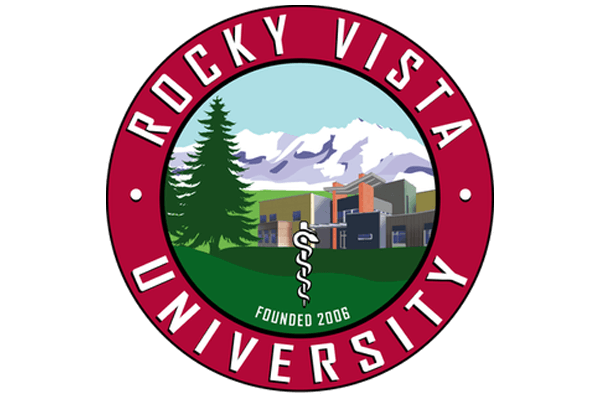In his groundbreaking report on addiction in America, former Surgeon General Vivek Murthy suggested “a comprehensive approach” to address the substance misuse crisis in the United States including “improved access to evidence-based treatment services, integrated with mainstream healthcare, for those at risk for or affected by substance use disorders.“
Better integration with mainstream healthcare requires better addiction training for medical professionals—among other things. In a new partnership with Rocky Vista University, Harmony Foundation is now providing just that.
RVU was established in 2006 as the nation’s first private, for-profit health sciences university to offer a professional medical degree since 1910. RVU’s College of Osteopathic Medicine grants the degree of Doctor of Osteopathic Medicine (DO) and admitted its inaugural class of medical students at the Parker, Colorado campus in 2008.
Recently, RVU added a physician assistant program. The goal of the PA program is to support the development of “clinically competent, collaborative, and compassionate” physician assistants. One of the first students in that program is Adrianne Bryant who recently also benefitted from the trailblazing partnership with Harmony. She was able to learn quite a lot about the treatment of substance use disorder (SUD) during her rotation at Harmony.
Supervised by Harmony’s medical director, Christopher Reveley, MD, Bryant got a “well-rounded look at addiction treatment and what recovery is like,” as she puts it. “I had the opportunity to talk with the psychologist and multiple counselors. I was able to take part in group therapy and learned about managing meds and the detox process. I’m getting a really good overview of the whole program.”
It’s a modest but important beginning. Harmony aims to become an incubator for teaching and learning around the medical side of addiction. Dr. Reveley considers Harmony an ideal place for that kind of training. For many medical professionals, this “may very well be their only experience in addiction medicine before launching into their careers, regardless of whether they become MDs, DOs, or PAs,” he says. “Here at Harmony, we can offer a full spectrum of inpatient treatment. We’re treating all kinds of addiction problems, with all kinds of substances, and we have a fully qualified mental health staff.”
This kind of first-hand experience is often lacking in the medical field. Not many medical schools require or even offer it, despite the current addiction crisis in America. Dr. Reveley can speak from experience. Years ago, when he went to medical school himself, he didn’t have any addiction training at all. Then, when he became interested in recovery and the treatment of addiction after years as an anesthesiologist, he started to look for an addiction medicine fellowship. There were fewer than 50 on offer in the entire United States—in 2015!
“It’s really admirable that RVU has acknowledged the importance of addiction treatment,” says Reveley. “Primary care doctors, in particular, are in the front lines of recognizing addiction in patients and getting them into treatment. So it’s so important for someone like Adrianne Bryant, who might be working in a primary care clinic to know what addiction looks like.”
Bryant agrees: “I don’t think people have a real good sense what drug-seeking behavior looks like, so we may not recognize it all the time,” she says. “This rotation is helping me in that regard because I see people in recovery who genuinely try to get better. Sitting in on counseling sessions, witnessing patients taking an honest look at their lives, I get a better sense of what people struggling with addiction are like, what they were like in active addiction, and what recovery looks like.”
Dr. Reveley hopes that collaborations like the RVU-Harmony partnership will get more medical professionals interested in addiction treatment. Thanks to her Harmony rotation, Ms. Bryant will certainly be in a better position to recognize SUD in her patients and suggest evidence-based therapy for them. That’s a big step forward. “A lot of substance misuse doesn’t result in treatment because doctors simply don’t ask about it,” says Reveley.
Addiction is a complex biopsychosocial disease requiring comprehensive treatment in an integrated care environment. Many agencies can help make that treatment a reality. In the case of the new partnership, Rocky Vista was also aided by the Area Health Education Center (AHEC) which helped with the placement of students. The AHEC Program works with regional offices to build state-wide network capacity in Colorado, strengthening academic-community linkages in four core mission areas: health careers and workforce diversity, health professions student education, health professions continuing education and public health and community education.


